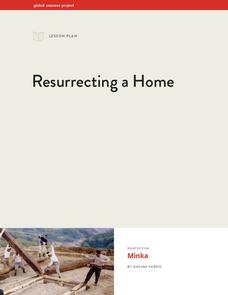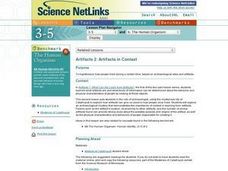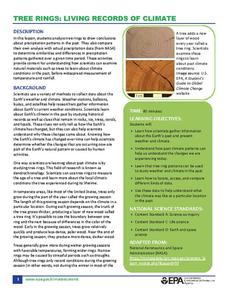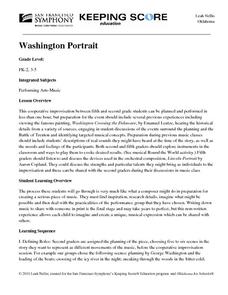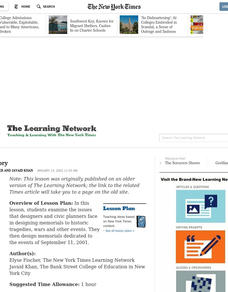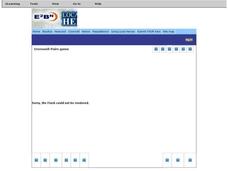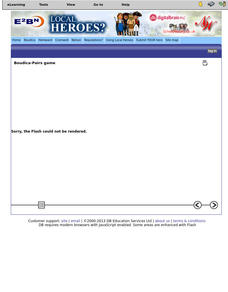Smithsonian Institution
Racism and Removal: Japanese Incarceration During World War II
During World War II people saw how far the government's control would go, but it was at the expense of its citizens. The resource brings the conditions of Japanese American internment camps to light using primary documents. Scholars...
Smithsonian Institution
Targeted at Home: Islamophobia
September 11th was a terrible tragedy with long-reaching consequences. Scholars learn about the Islamophobia that occurred to many Muslim Americans following the 9/11 attacks. The resource provides videos, articles, and interviews to...
Smithsonian Institution
Hidden Histories: Mexican Repatriation During the 1930s
Mexican Repatriation: the forgotten deportation of American citizens. The resource focuses on the deportation of Mexican American citizens during the Great Depression. Young historians read documents, complete a free-write, and fill out...
Global Oneness Project
Resurrecting a Home
Davina Pardo's documentary Minka asks viewers to consider that value of preserving traditional dwellings and traditional building techniques by examining how American journalist John Roderick and Japanese architect Yoshihiro Takishita...
Curated OER
Artifacts 2: Artifacts in Context
Students explore world history by completing artifact worksheets. In this archaeology instructional activity, students identify the importance of finding clues when researching historical information by utilizing artifacts. Students...
Curated OER
Centers of the Storm: The Lyceum and the Circle at the University of Mississippi
Greek Revival architecture and the Civil Rights Movement? Sure! Examine how the Lyceum and Circle, two historic buildings located on the campus of the University of Mississippi, relate to integration and the 1962 riot on the university...
Curated OER
Poverty Point Indians Leave Their Mark
Poverty Point is a historical landmark in Louisiana that was inhabited by Indians. Students will learn about the large mound the Poverty Point Indians created called Bird Effigy Mound in this nine-slide PowerPoint. Slide eight includes 8...
Smithsonian Institution
Mary Henry: Journal/Diary Writing
A great way to connect social studies with language arts, a resource on Mary Henry's historical diary reinforces the concepts of primary and secondary sources. It comes with an easy-to-understand lesson plan, as well as the reference...
US Environmental Protection Agency
Tree Rings: Living Records of Climate
Open with a discussion on weather and climate and then explain how tree rings can provide scientists with information about the earth's past climate. Pupils analyze graphics of simulated tree rings from various US locations for the...
Stanford University
Great Plains Homesteaders
"Westward, ho!" may have been their cry in spite of the hardships. Using a series of photographs by Solomon D. Butcher of those who ventured west, class members consider what life was like in the 1800s for those who embarked on the...
Stanford University
Migrant Mother Photograph
A picture often has hidden stories to tell. Looking at the iconic Migrant Mother photography by Dorothy Lange, individuals examine the human toll of the Dust Bowl and the Great Depression at large. Other documents, including a statement...
Curated OER
Message in a Bottle - A Satellite Journey through the Gulf Stream
The Gulf Stream has historically provided humans with a faster trade route because of its swift-moving waters. It continues to be a source of information and fascination for oceanographers today. As your class views this collection of...
Smithsonian Institution
We Have a Story to Tell: Native Peoples of the Chesapeake Region
How did colonial settlement and the establishment of the United States affect Native Americans in the Chesapeake region? Your young historians will analyze contemporary and historical maps, read informational texts, and work in groups to...
San Francisco Symphony
Washington Portrait
Fifth and second graders pair up to create mini dance scenes based on the image Washington Crossing the Delaware. Second graders create the movements while their fifth grade partners play the musical accompaniment. Leadership skills,...
Edible Schoolyard
Pan de los Muertos
Accompany instruction and the celebration of El Dia de los Muertos with a loaf of Pan de los Muertos. Here, scholars measure ingredients precisely to create tasty bread, write a remembrance for someone who has passed away, and take part...
Curated OER
Stars and Bars Forever?
Students investigate icons, monuments and places that serve as symbols of American history, assessing how and why the meanings of these historic symbols evolve through time to acquire new or different significance.
Curated OER
Looking Back to Move Forward
Students investigate, through interviews, personal reflection and research, the impact on the past, present and future of 20th century historic events in the United States.
Curated OER
In Memory
Students examine the issues that designers and civic planners face in designing memorials to historic tragedies, wars and other events. They design memorials dedicated to the events of September 11, 2001.
Curated OER
Historical Pairs, Local Heroes: Lord Nelson
In this online interactive history quiz worksheet, students respond to 8 matching questions about Lord Nelson. Students may check their answers instantly.
Curated OER
Historical Pairs, Local Heroes: Oliver Cromwell
In this online interactive history quiz activity, students respond to 8 matching questions about Oliver Cromwell. Students may check their answers instantly.
Curated OER
Historical Pairs: Hereward the Wake
In this online interactive history worksheet, learners respond to 8 matching questions about Hereward the Wake. Students may check their answers instantly.
Curated OER
Historical Pairs, Local Heroes: Queen Boudica
In this online interactive history worksheet, students respond to 8 matching questions about Queen Boudica. Students may check their answers instantly.
Curated OER
Call to Arms: A Service Project
Sick of selling candy and washing cars? How about hosting a Digital Day or a Learning Lunch? The suggestions here make fund raising fun and rewarding. Raise money to preserve important maps and other primary source documents.
Curated OER
Rationalizing Race in US History
Students consider the classification of people. In this race studies lesson, students examine the concept of race as it relates to U.S. history and trends. Students research racial discrimination and prejudice in order to support their...





